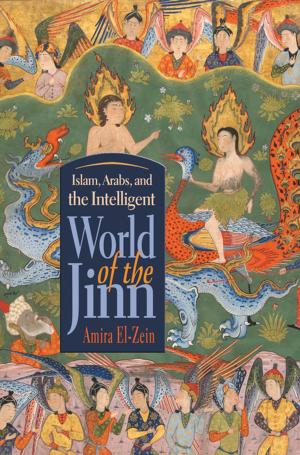Did Islam Change? Or Did the Muslims Change?: Book XI - Islam
The Harmony Between Men and Nations and Book XII - La Convivencia, "The Working Together"
Nonfiction, Religion & Spirituality, Middle East Religions, Koran, Islam| Author: | Ghani | ISBN: | 9780997413304 |
| Publisher: | White Ink Press | Publication: | May 30, 2016 |
| Imprint: | White Ink Press | Language: | English |
| Author: | Ghani |
| ISBN: | 9780997413304 |
| Publisher: | White Ink Press |
| Publication: | May 30, 2016 |
| Imprint: | White Ink Press |
| Language: | English |
Islam: The Harmony Between Men and Nations is the first installment of a projected series titled Did Islam Change? Or Did the Muslims Change? The books were written by Ghani, an American Muslim who has lived with his family in Pakistan for over thirty years to learn about Islam and his cultural roots. The series, which took more than eight years to write, explains the tenets of Islam through the words of the Qur’an.
In Islam: The Harmony Between Men and Nations, Ghani explains Islam’s teachings regarding how to bring about peace and harmony to the world. Using the words of the Qur’an itself, he explains the reasons for wars and discord among men, nations, and religions. Then he sets forth ways to resolve these conflicts. Ghani believes that when men read the Qur’an with care and deliberation, a resurgence of the Muslim World can ensue.
Fourteen centuries ago, Islam was revealed for the spiritual and material benefit of mankind. The teachings of the Prophet transformed the backward and pitiable Arab peoples into examples for the world to follow. For almost five centuries, Muslim scholars contributed much to the medieval world in terms of wisdom, science, and technology. They taught Europeans about algebra and optics, astronomy and chemistry, and even introduced ice cream. The light of erudition in Muslim books and instruments helped take Europe out of its long and difficult Dark Age and into the Renaissance. But, ironically, much of the Muslim world today is populated by the most backward and troubled peoples on the planet. The Qur’an is exactly the same today as it was when it was revealed to Muhammad over 1,400 years ago. The Azan, or Muslim call to prayer, is spoken exactly the same today as it was during the time of Averroes, as are the words of the Muslim prayer itself. The Muslim fast of Ramadan is exactly the same today as it was centuries ago.
It seems that Muslims today must ask a vital question: Did Islam change? Or did the Muslims change?
It is hoped that this series, which is based on the writer’s experiences in both America and Pakistan can help readers find some solutions to the various and complex issues we see in the world today.
Islam: The Harmony Between Men and Nations is the first installment of a projected series titled Did Islam Change? Or Did the Muslims Change? The books were written by Ghani, an American Muslim who has lived with his family in Pakistan for over thirty years to learn about Islam and his cultural roots. The series, which took more than eight years to write, explains the tenets of Islam through the words of the Qur’an.
In Islam: The Harmony Between Men and Nations, Ghani explains Islam’s teachings regarding how to bring about peace and harmony to the world. Using the words of the Qur’an itself, he explains the reasons for wars and discord among men, nations, and religions. Then he sets forth ways to resolve these conflicts. Ghani believes that when men read the Qur’an with care and deliberation, a resurgence of the Muslim World can ensue.
Fourteen centuries ago, Islam was revealed for the spiritual and material benefit of mankind. The teachings of the Prophet transformed the backward and pitiable Arab peoples into examples for the world to follow. For almost five centuries, Muslim scholars contributed much to the medieval world in terms of wisdom, science, and technology. They taught Europeans about algebra and optics, astronomy and chemistry, and even introduced ice cream. The light of erudition in Muslim books and instruments helped take Europe out of its long and difficult Dark Age and into the Renaissance. But, ironically, much of the Muslim world today is populated by the most backward and troubled peoples on the planet. The Qur’an is exactly the same today as it was when it was revealed to Muhammad over 1,400 years ago. The Azan, or Muslim call to prayer, is spoken exactly the same today as it was during the time of Averroes, as are the words of the Muslim prayer itself. The Muslim fast of Ramadan is exactly the same today as it was centuries ago.
It seems that Muslims today must ask a vital question: Did Islam change? Or did the Muslims change?
It is hoped that this series, which is based on the writer’s experiences in both America and Pakistan can help readers find some solutions to the various and complex issues we see in the world today.















